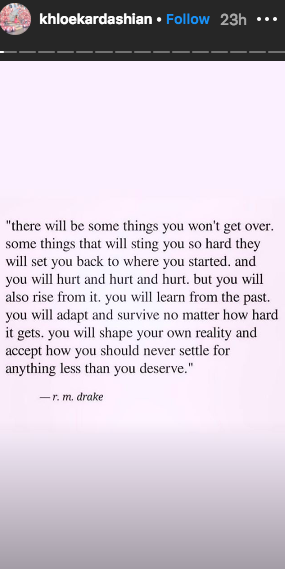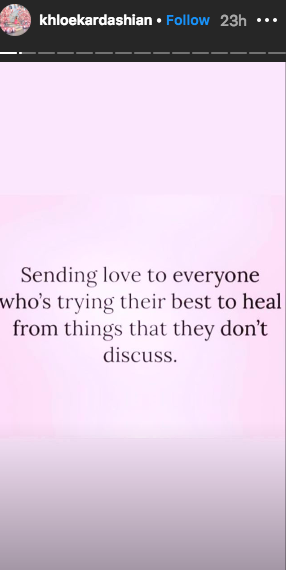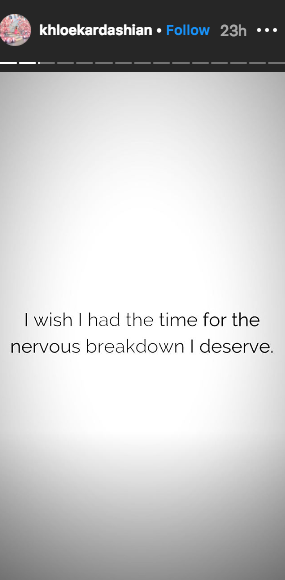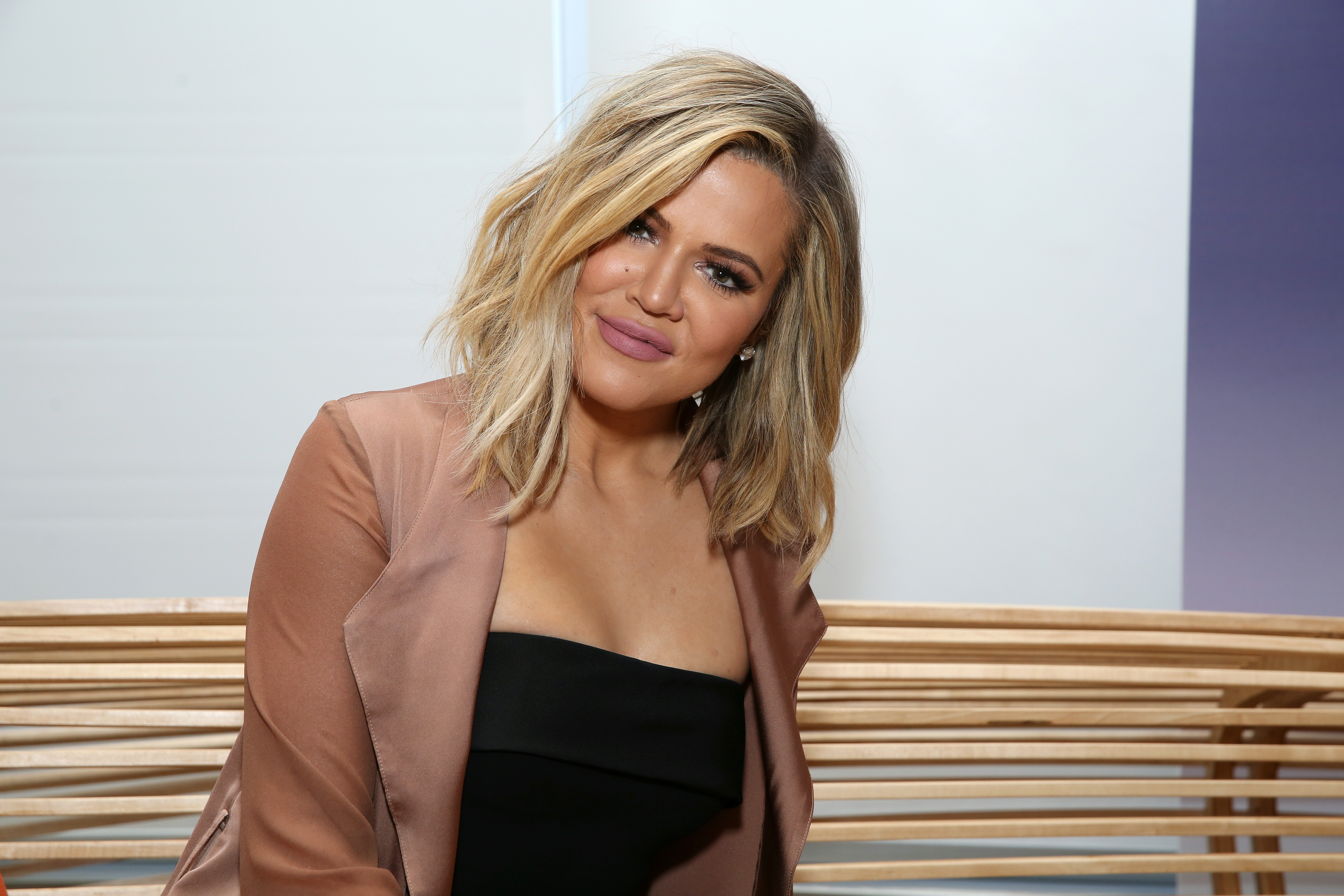As the cultural conversation around burnout continues at a fever pitch, thanks in part to the recent viral article and dialogue about mental stress affecting millennials, more and more people are sharing their own experiences. Khloé Kardashian is one of them. The reality TV star took to social media to share with her followers that she’s currently going through a challenging time in the wake of her partner Tristan Thompson’s public cheating around the time of the arrival of their first child, True.
Kardashian alluded to the incident on Instagram, posting a quote that read, “There will be some things you won’t get over. Some things that will sting you so hard they will set you back to where you started. And you will hurt and hurt and hurt. But you will also rise from it. You will learn from the past. You will adapt and survive no matter how hard it gets. You will shape your own reality and accept how you should never settle for anything less than you deserve.”
She also reached out to everyone else “who’s trying their best to heal from things that they don’t discuss,” and, troublingly, added, “I wish I had the time for the nervous breakdown I deserve.”



This isn’t the first time Kardashian has talked about stress: Back in November, she shared that she was unable to breastfeed her daughter due to stress. When one fan asked if breastfeeding “hurt,” she replied on Twitter, “I tried breast-feeding for weeks and weeks! For me it was so painful but I also was not producing a lot of milk. So I had to pump every time she was napping. I guess due to stress my milk was not coming in. I tried and I just couldn’t give her enough. So I had to go to formula.”
Kardashian has never been this candid about burnout, specifically, though — and her comment about needing “time for a nervous breakdown” displays a misunderstanding of how to recover from periods of significant stress. One thing she and others experiencing burnout can do is take microsteps, as Paula Davis-Laack, author of Addicted to Busy, and the founder of the Davis Laack Stress & Resilience Institute, notes. “The research strongly suggests that in order to prevent burnout, we have to incorporate periods of recovery both at work and outside of work on a very regular basis,” she explains. “What works especially well, though, is short breaks. Five minutes of listening to your favorite song; talking to a colleague or friend; writing for five minutes about a meaningful project; laughing at a funny quote, etc. Acts of recovery are not things that have to take a long period of time — but leaders need to model this behavior so that it becomes the norm.”
It’s important not to rely on something like a vacation as a magic fix, thinking, as Kardashian seems to, that going away or having time off will give you the space for a full-blown breakdown, or provide you with a way to run away from your problems, Davis-Laack points out. “Often, burnout sufferers are told, just take a day off, or take a vacation,” she tells Thrive. “Research shows that vacations do help to ease your burnout, but it’s a temporary fix. When you return to work, burnout levels tend to pop back up to pre-vacation levels within a few weeks.” When facing periods of stress, turmoil, and burnout, “time for a nervous breakdown” is never the answer. Rather, it’s about addressing that stress promptly, and building in time to recover and recharge.
Follow us here and subscribe here for all the latest news on how you can keep Thriving.
Stay up to date or catch-up on all our podcasts with Arianna Huffington here.


